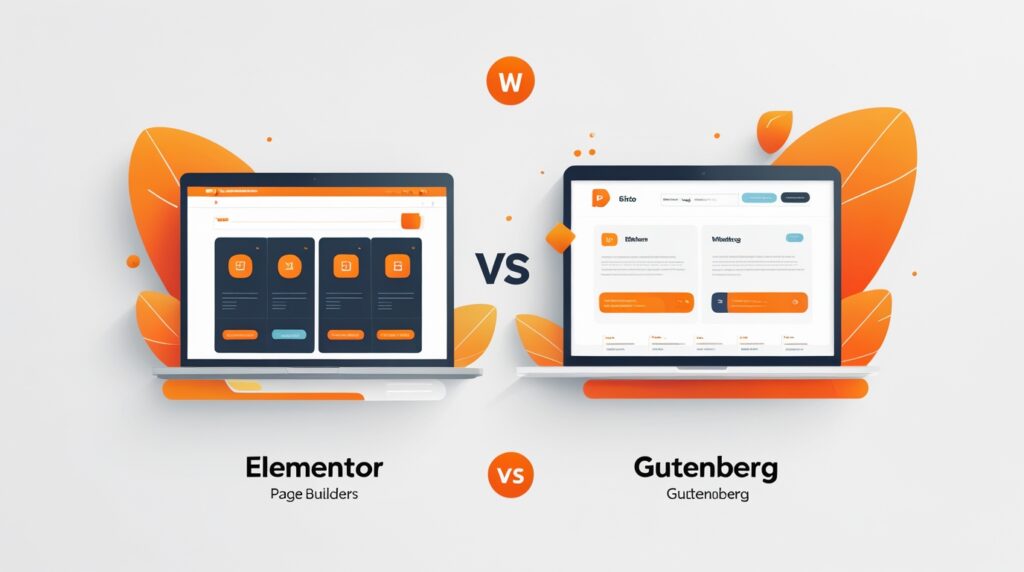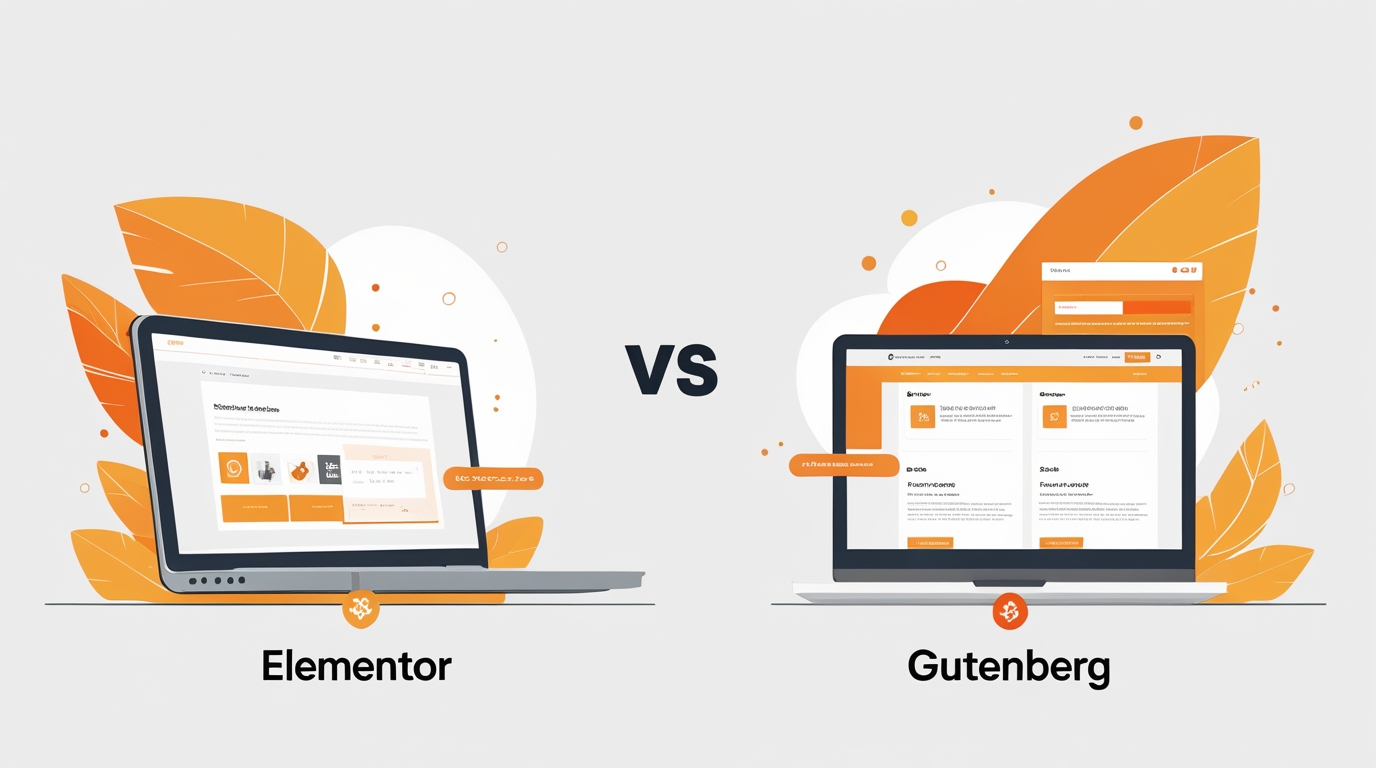If you’re building a WordPress website, one of the first decisions you’ll face is choosing between Elementor vs Gutenberg. Both are powerful page builders that help you design pages without writing code—but they work in very different ways.
In this article, we’ll compare Elementor and Gutenberg in terms of design flexibility, performance, ease of use, and pricing, so you can decide which tool fits your website goals best.
Understanding Elementor and Gutenberg
Before diving into comparisons, let’s quickly define both.
- Elementor: A third-party drag-and-drop page builder plugin for WordPress. It provides full visual control, advanced widgets, templates, and styling options.
- Gutenberg: The default block editor that comes with WordPress. It’s fast, lightweight, and ideal for simpler content layouts.
👉 On my Services Page, I often use both builders depending on client requirements—Elementor for full customization and Gutenberg for fast-loading blogs.

1. Ease of Use
Elementor:
- User-friendly drag-and-drop interface.
- Beginners can design visually without coding.
- Real-time editing makes design changes simple and instant.
Gutenberg:
- Works with content blocks like text, images, buttons, and columns.
- It’s simpler but offers less visual flexibility.
- Great for writing blogs or creating minimal layouts.
✅ Winner: Elementor – perfect for users who prefer visual design freedom.
2. Design Flexibility
Elementor:
- Comes with 100+ widgets for layouts, animations, sliders, and popups.
- Elementor Pro offers custom headers, footers, and dynamic content support.
Gutenberg:
- Limited design control unless you install extra plugins.
- Great for basic blog layouts but lacks advanced animations or templates.
👉 My Portfolio Page includes examples of websites where Elementor’s design flexibility truly shines.
✅ Winner: Elementor – unbeatable creative control for designers and developers.
3. Speed and Performance
Elementor:
- Adds extra code, which can slightly affect page speed.
- Speed issues can be optimized using caching and image compression.
Gutenberg:
- Built directly into WordPress, so it’s lightweight and extremely fast.
- Fewer assets and scripts mean better performance.
✅ Winner: Gutenberg – ideal for speed-focused websites like blogs or portfolios.
4. Compatibility and Ecosystem
Elementor:
- Works seamlessly with themes like Astra and plugins such as WooCommerce.
- Offers a massive library of third-party add-ons for even more flexibility.
Gutenberg:
- Getting better every year, but some themes and plugins still lack full compatibility.
- The WordPress community is improving it quickly through updates.
✅ Winner: Elementor – better third-party ecosystem and plugin support.
5. Pricing
Elementor:
- Free version available with core features.
- Pro version starts at around $59/year, offering templates, animations, and advanced widgets.
Gutenberg:
- 100% free, as it’s built into WordPress itself.
✅ Winner: Gutenberg – perfect for budget-conscious users or simple sites.
6. Ideal Use Cases
| Use Case | Best Option |
|---|---|
| Simple blogs or content sites | Gutenberg |
| E-commerce and business websites | Elementor |
| Portfolio or creative websites | Elementor |
| High-performance minimal sites | Gutenberg |
| Client-based projects | Elementor |
👉 I often recommend Elementor for businesses (see my About Me Page) because it allows for easier customizations post-launch.
Verdict: Elementor vs Gutenberg
Both tools are excellent—but for different purposes.
| Criteria | Winner |
|---|---|
| Ease of Use | Elementor |
| Design Flexibility | Elementor |
| Speed | Gutenberg |
| Cost | Gutenberg |
| Ecosystem | Elementor |
✅ Overall Winner: Elementor
If your goal is to build a feature-rich, visually stunning website, Elementor wins hands down. For content-heavy, minimalist, or speed-focused sites, Gutenberg is a solid choice.
External Resource
For an in-depth technical breakdown, check this comparison from Kinsta’s Elementor vs Gutenberg guide.
Final Thoughts
The choice between Elementor vs Gutenberg ultimately depends on your website goals. Elementor is perfect for businesses and designers who need complete control, while Gutenberg is ideal for fast-loading blogs and simple websites.
If you’re unsure which one fits your project, feel free to Contact Me—I’ll help you choose the best option based on your goals, performance needs, and budget.
